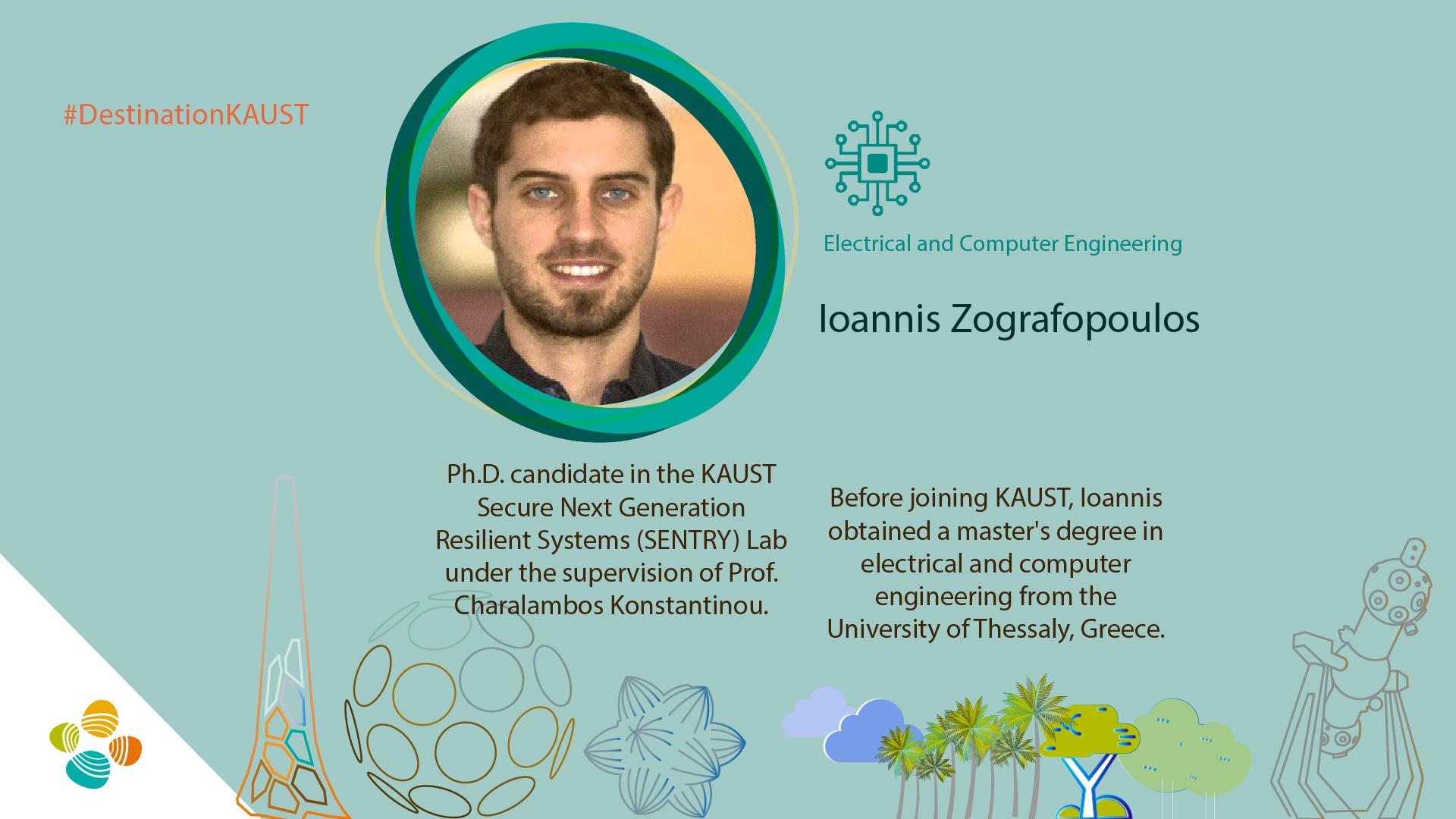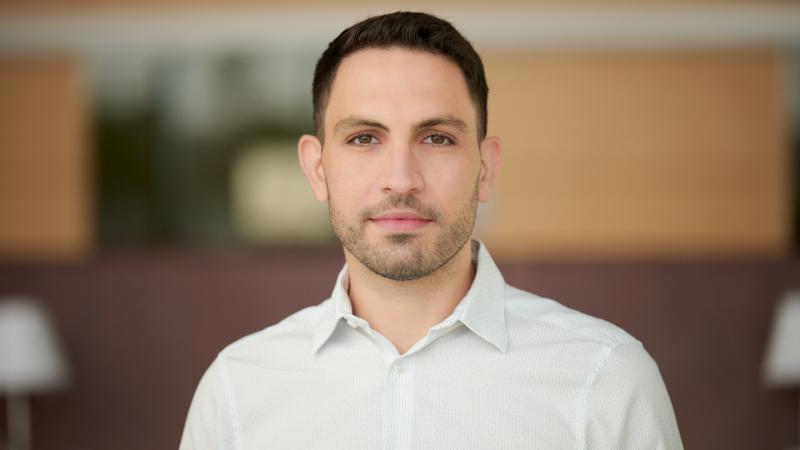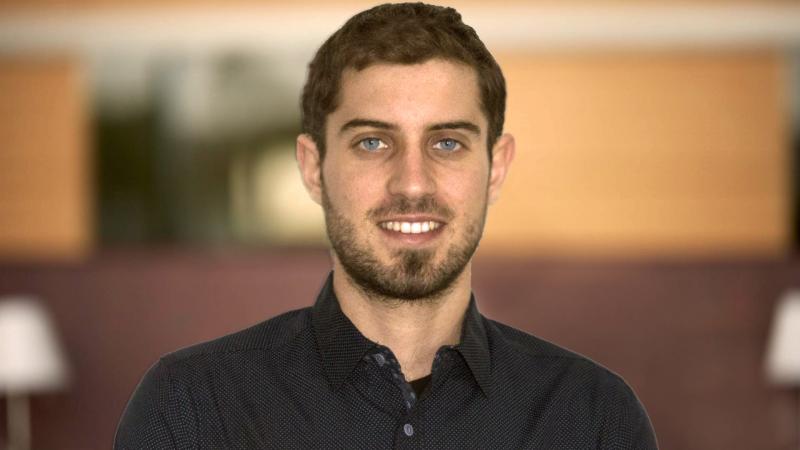By Taruna Rapaka
Ioannis Zografopoulos is a Ph.D. student who joined KAUST this fall as a Ph.D. candidate and member of the Secure Next Generation Resilient Systems (SENTRY) Lab under the supervision of Professor Charalambos Konstantinou.
Zografopoulos believes that KAUST's renowned faculty, global reputation and research infrastructure make the University the ideal environment for him to develop high-quality, impactful research.
He received his bachelor's degree in computer, communications, and network engineering and master's degree in electrical and computer engineering from the University of Thessaly, Greece. He is also an IEEE and IEEE PES graduate student member and serves as a reviewer for many IEEE and ACM conferences and journals.
What was your main subject during your master's degree? Why did you choose it?
Computer hardware and security have always fascinated me since my junior year at university. After graduating with my bachelor’s degree, I decided to enroll for a master’s degree in electrical and computer engineering to combine my two interests — computer hardware and cybersecurity.
Since then, developing custom security architectures, leveraging embedded and IoT devices and off-the self-components to deal with industrial deployments have been my area of research. Solving, and making, the correct design decisions to improve the security of mission-critical systems gives me a sense of purpose.
When did you first become interested in electrical and computer engineering? What are your research interests?
During my undergraduate studies, I became curious about cybersecurity and resiliency, especially given that their weakest links can betray even sophisticated and heavily engineered systems. Hence, in my graduate studies, I decided to investigate cybersecurity in the most complex human-built system globally: the electric grid.
My research interests include cyber-physical and communications security, emphasizing IoT and embedded systems for industrial, distributed energy and power grid applications.
What do you do in your spare time? What are you passionate about?
I love sports, especially running. I also enjoy cycling and swimming in my free time.
I am also a passionate amateur hacker, and I find great joy in reverse engineering and disassembling devices to figure out how they work internally.
Can you give a piece of advice to students who plan to pursue a M.S./Ph.D. at KAUST?
I would advise prospective students to treat their studies with the utmost seriousness as part of their academic and personal growth. Always put in the hard work, strive for continuous improvements, and within KAUST's exceptional academic environment, everything else will fall into place.
What is your future outlook?
I plan to continue my studies, conduct research and present my Ph.D. dissertation at KAUST.
After my Ph.D., I aim to continue tackling the cybersecurity challenges of power grid systems in either an academic or industrial environment.


